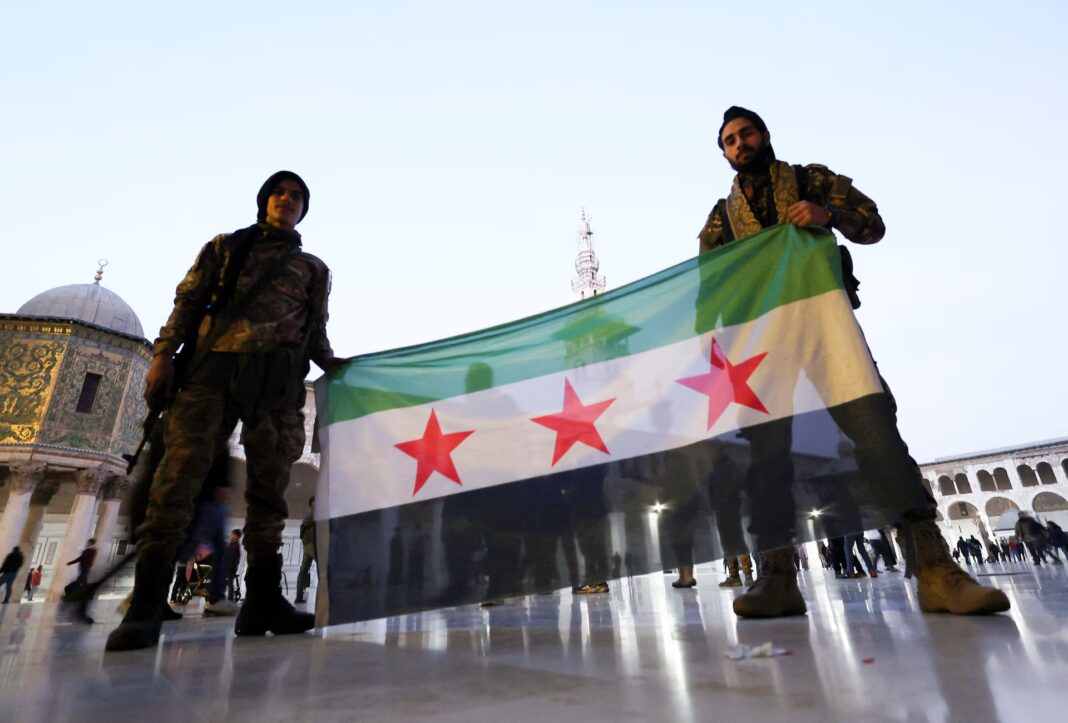The rapid overthrow of President Bashar al-Assad’s regime has shaken Syria, its neighbouring countries, and global powers. Over a mere 12 days, a civil war that lasted 13 years, claiming countless lives and devastating the nation, reached an unexpected turning point. Rebel forces, led by Hayat Tahrir al-Sham (HTS), are now moving toward forming a new government.
A Stunned Global Reaction
The United Nations Security Council held a late-night meeting to discuss the developments. Diplomats expressed shock at how quickly Assad’s government collapsed. Assad, who ruled with an iron grip for more than a decade, fled to Moscow. His departure marked the end of over 50 years of authoritarian rule by his family.
Transition of Power Begins
In a symbolic step toward change, Assad’s Prime Minister, Mohammed Jalali, agreed to hand over power to a new rebel-led transitional government. This administration will be led by Mohamed al-Bashir, a key figure in the Salvation Government, which operates from rebel-controlled areas.
Negotiations for a peaceful handover of power are ongoing, with both sides working to ensure a smooth transition. Rebel leaders have promised to rebuild Syria and create a state based on justice, equality, and democracy.
Who Are the New Leaders?
The rebel alliance that overthrew Assad is led by HTS, a group with a controversial history. Once affiliated with al-Qaeda, HTS has spent recent years attempting to reshape its image. Its leader, Ahmed al-Sharaa, known as Abu Mohammed al-Golani, has assured Syrians and the international community that rebuilding the country is their top priority.
While some in Damascus celebrate the end of Assad’s rule, others are anxious about what comes next. HTS’s governing abilities and plans for Syria’s future remain unclear. The group’s past designation as a terrorist organisation by many nations adds to the uncertainty.
Economic and Social Challenges
Syria faces monumental challenges as it moves forward. The civil war left cities in ruins, farmlands abandoned, and an economy devastated by years of sanctions. Basic services, including banking and oil production, are slowly resuming. Authorities have promised to protect workers returning to critical industries.
Despite these steps, fears of retaliation against those who supported Assad’s regime persist. HTS has vowed to hold individuals accountable for war crimes and crimes against humanity. They have announced plans to publish a list of officials accused of atrocities.
Hope for a New Beginning
Many Syrians are hopeful about the future. Rebel fighters in the streets of Damascus expressed a desire for a government that respects the rights and freedoms of its citizens. Some fighters, like those from the countryside, are eager to return to civilian life, rebuilding farms and homes destroyed by war.
The rebel leaders have promised to prioritize creating a fair judicial system, ensuring human rights, and fostering a sense of unity among Syria’s diverse population. However, they face the massive task of gaining international recognition and overcoming years of mistrust.
Regional and Global Concerns
The overthrow has caused ripples across the Middle East and beyond. Oil prices rose slightly due to concerns over potential instability in the region. While Syria is not a major oil producer, its location makes it a focal point for regional tensions.
Neighboring Israel has also taken action. In the south, Israel seized a buffer zone, citing security concerns. This move has been condemned by many Arab nations, who warned it could disrupt Syria’s path to peace. Israel insists its actions are temporary and defensive.
Meanwhile, other countries are cautiously reaching out to the new leadership in Syria. Nations like Qatar and Turkey have opened dialogue with HTS, aiming to shape the future of the region.
Looking Ahead
As the dust settles, Syrians and the international community are watching closely to see how the situation unfolds. Establishing a stable government that represents all citizens and addresses the country’s massive rebuilding needs will be crucial.
The people of Syria are hopeful for freedom, dignity, and a better future. However, achieving these goals will require cooperation, trust, and a clear vision from their new leaders. The world waits to see if this generational change can bring lasting peace to a nation long defined by conflict.

